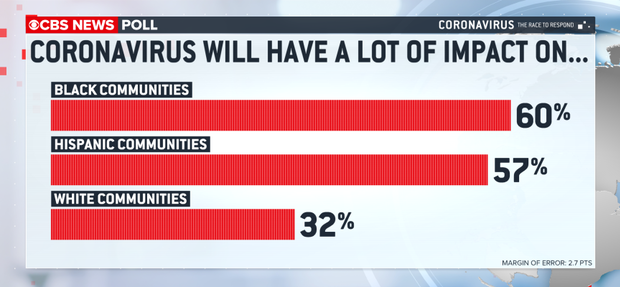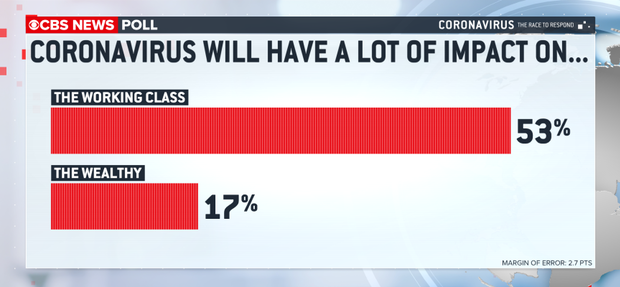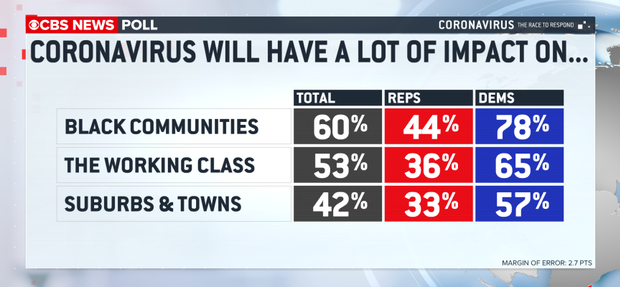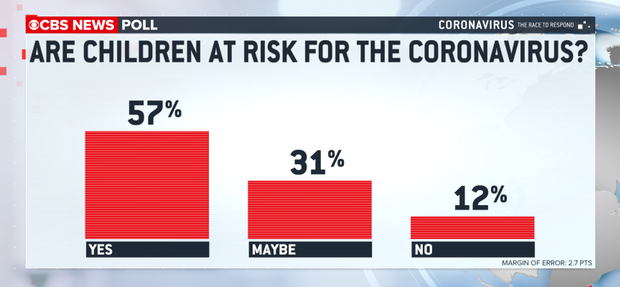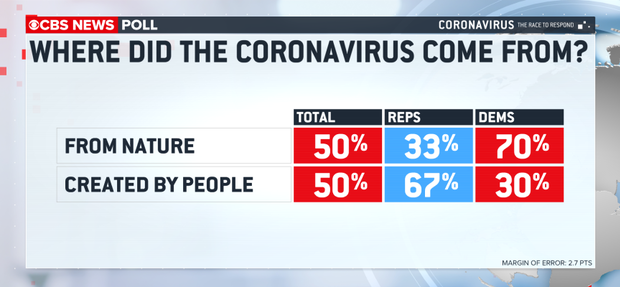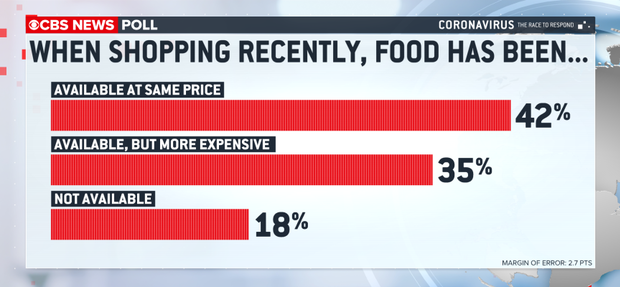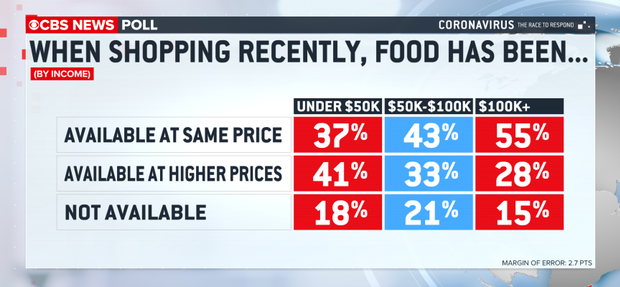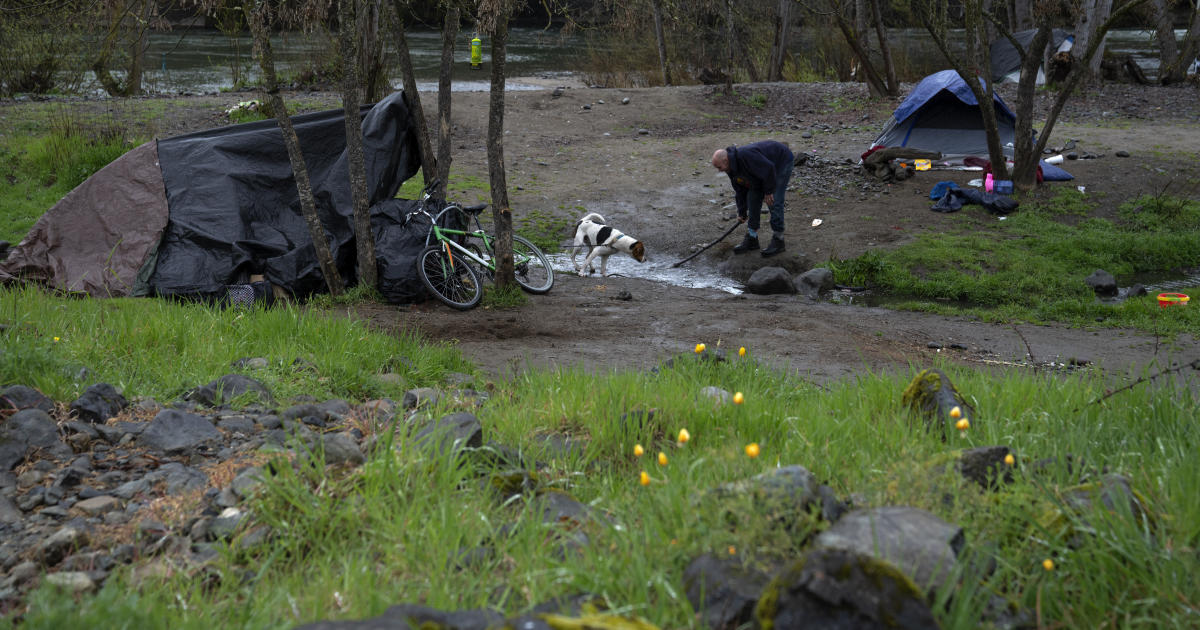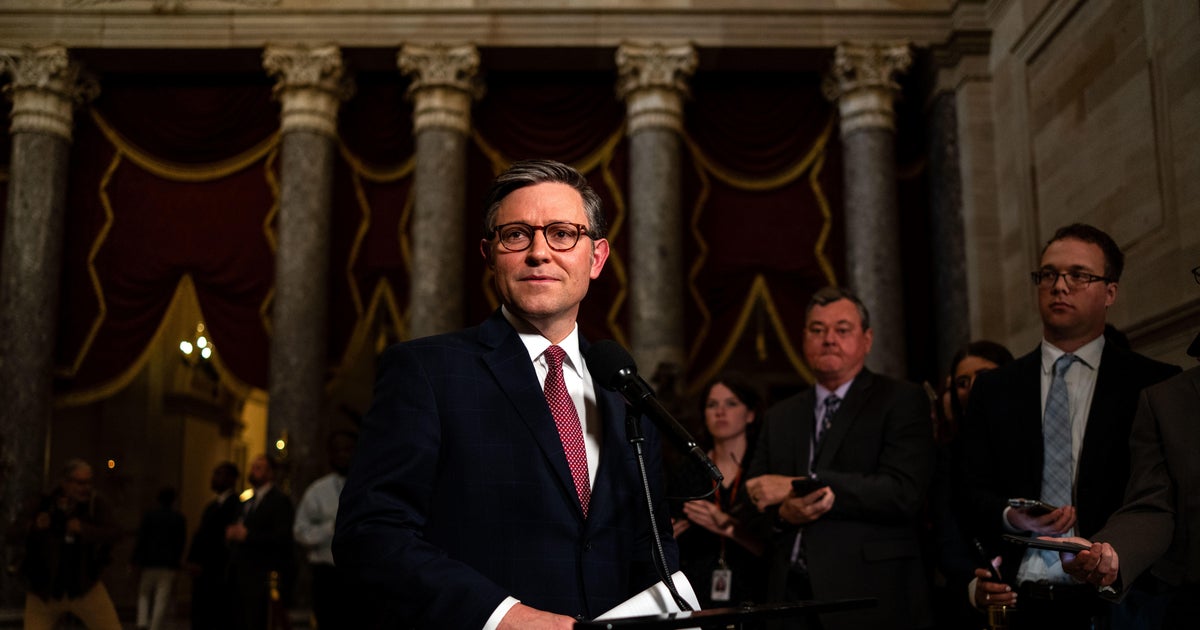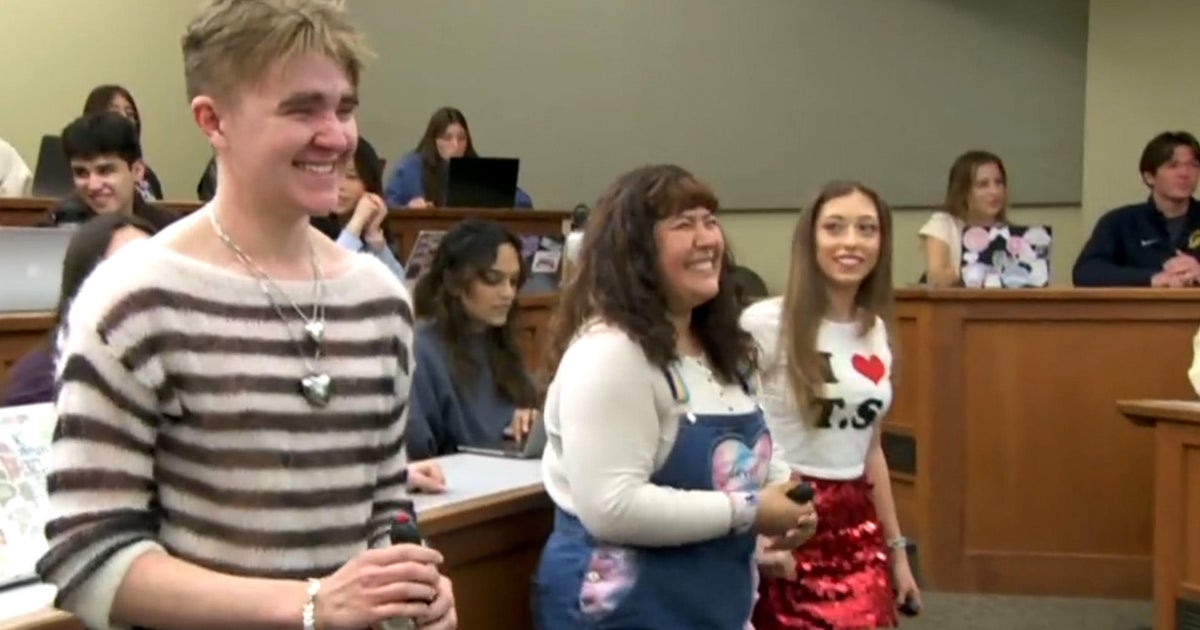Americans differ on views of COVID-19 impact - CBS News poll
- Many Americans see changes in price or availability of the foods they want.
- Most Americans think children are at risk from the virus.
- Partisanship defines different realities: they see differences in which communities are affected most — what the death toll really is.
- And half suspect the coronavirus was created on purpose by people — a view that splits heavily by partisanship and educational attainment.
Americans perceive wide disparities along class, racial, and geographic lines in terms of whose health they think will be most affected by the coronavirus: the working class, more so than the wealthy; cities and suburbs, more than rural areas; African-American and Hispanic communities, more so than white communities; and more among older people than younger - though most now do think children can be affected.
Views of who's impacted don't vary much by age or gender, but partisanship plays a big role in perception. Democrats are often more likely than Republicans to think groups will be impacted. Democrats are much more likely to think the suburbs will be affected a lot; that black and hispanic communities will be affected a lot; and that working-class people will be impacted a lot. The two partisan groups have comparable views that older people and cities are affected.
Children at risk?
Most Americans think children are at risk for the virus. Older Americans are more likely to think so, and here — as in many aspects of the pandemic — more Democrats than Republicans think this is the case, even though they think older people will bear more of the overall impact than younger ones.
Origins of the virus
Partisans even differ on where they think the virus came from. Most Democrats (70%) say it is something that came from nature while most Republicans (67%) believe it was created by people purposefully. Educational attainment is a factor here too: most college graduates and post-graduates think it's from nature, while those without a college degree are inclined to think the virus was created by people.
Food Supply
Almost one in five Americans report a food shortage in the sense of not being able to find the groceries they normally buy when shopping recently. Another third say the prices of things they regularly buy have risen.
It's lower-income Americans who are noticing higher prices the most. While 41% of those earning under $50,000 a year report groceries going for much higher prices than usual, just 28% of Americans earning over $100,000 a year say the same.
Death toll
The death toll from the virus has been a topic of discussion, both in the models of what it could be, and as a grim measure of how the country is faring.
When asked what the largest number of fatalities is that could still represent a successful U.S. effort against the outbreak, 41% say there have already been too many lives lost. As the death toll has risen, so have many peoples' ranges of what would constitute successful containment.
But there are sharp partisan differences in what success means. While 55% of Democrats say there have already been too many deaths, a quarter of Republicans say the same. Another 22% of Republicans say it would be a success if the toll is kept under 100,000, while only 10% of Democrats say that.
Nearly half of Americans (47%) say the death toll is actually larger than what's being reported. A third say it's actually smaller, and the remaining 20% say it's about what's being reported.
Two-thirds of Democrats say it's larger; half of Republicans say it's smaller; and independents are pretty evenly divided between the two responses.
Americans are aware that tens and tens of thousands have died, but vary when guessing the actual number. When asked more specifically what they think the number is, 29% pick a range of 75,000-100,000. Another 32% pick ranges up to 75,000, including nearly half of Republicans. And 21% say the number is more than 100,000, including a quarter of Democrats.
This CBS News survey was conducted by YouGov using a nationally representative sample of 2,000 U.S. residents interviewed between May 11-13, 2020. This sample was weighted according to gender, age, race and education based on the American Community Survey, conducted by the U.S. Bureau of the Census, as well as 2016 presidential vote and registration status. The margin of error is +/- 2.7 points.
